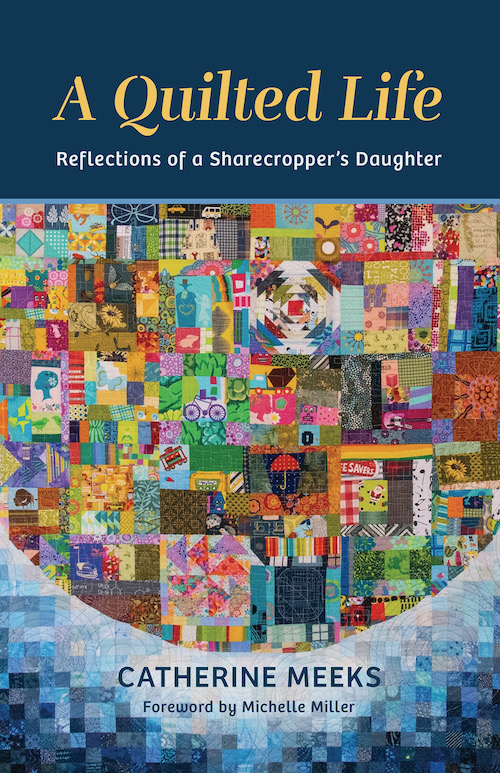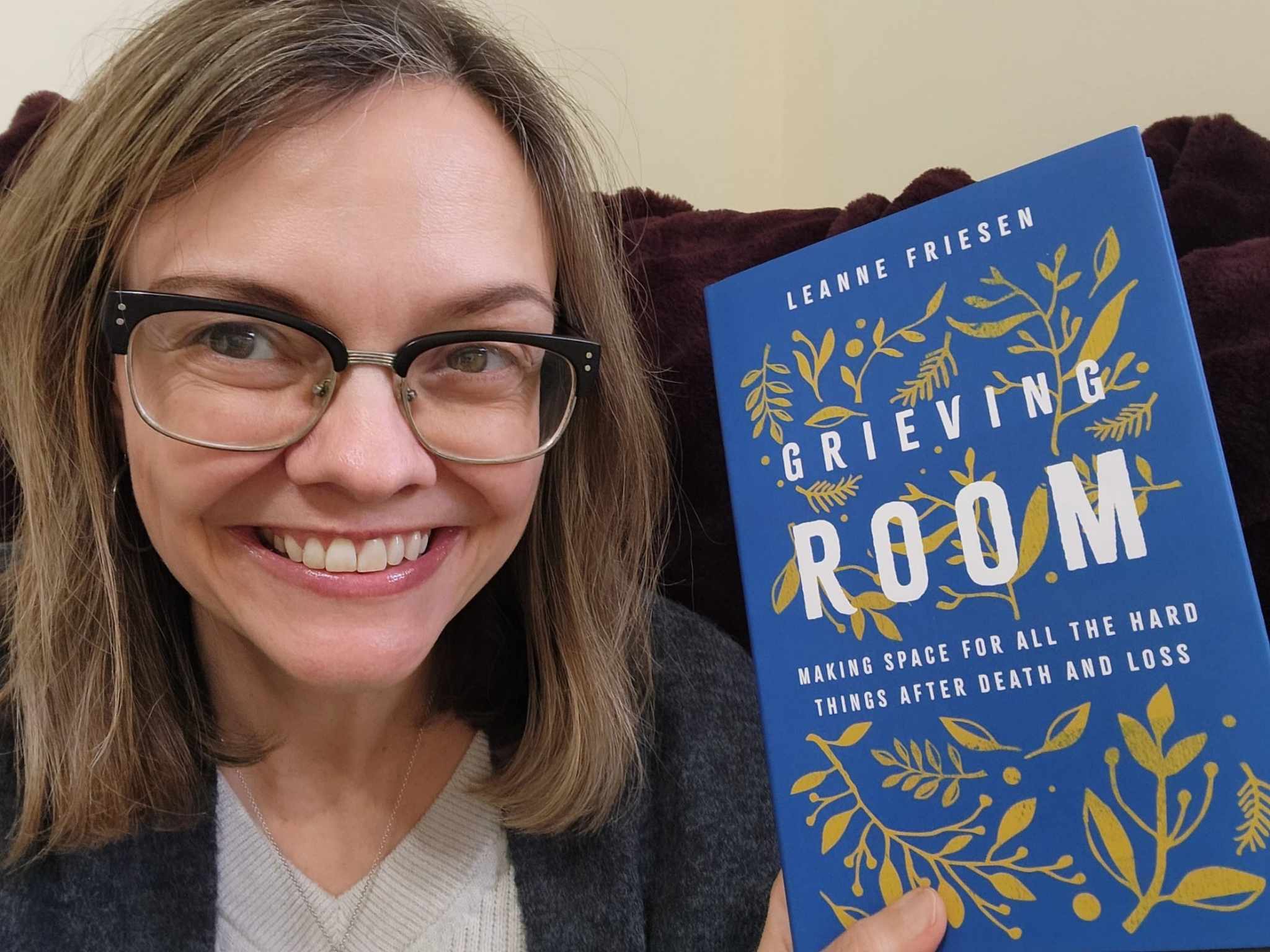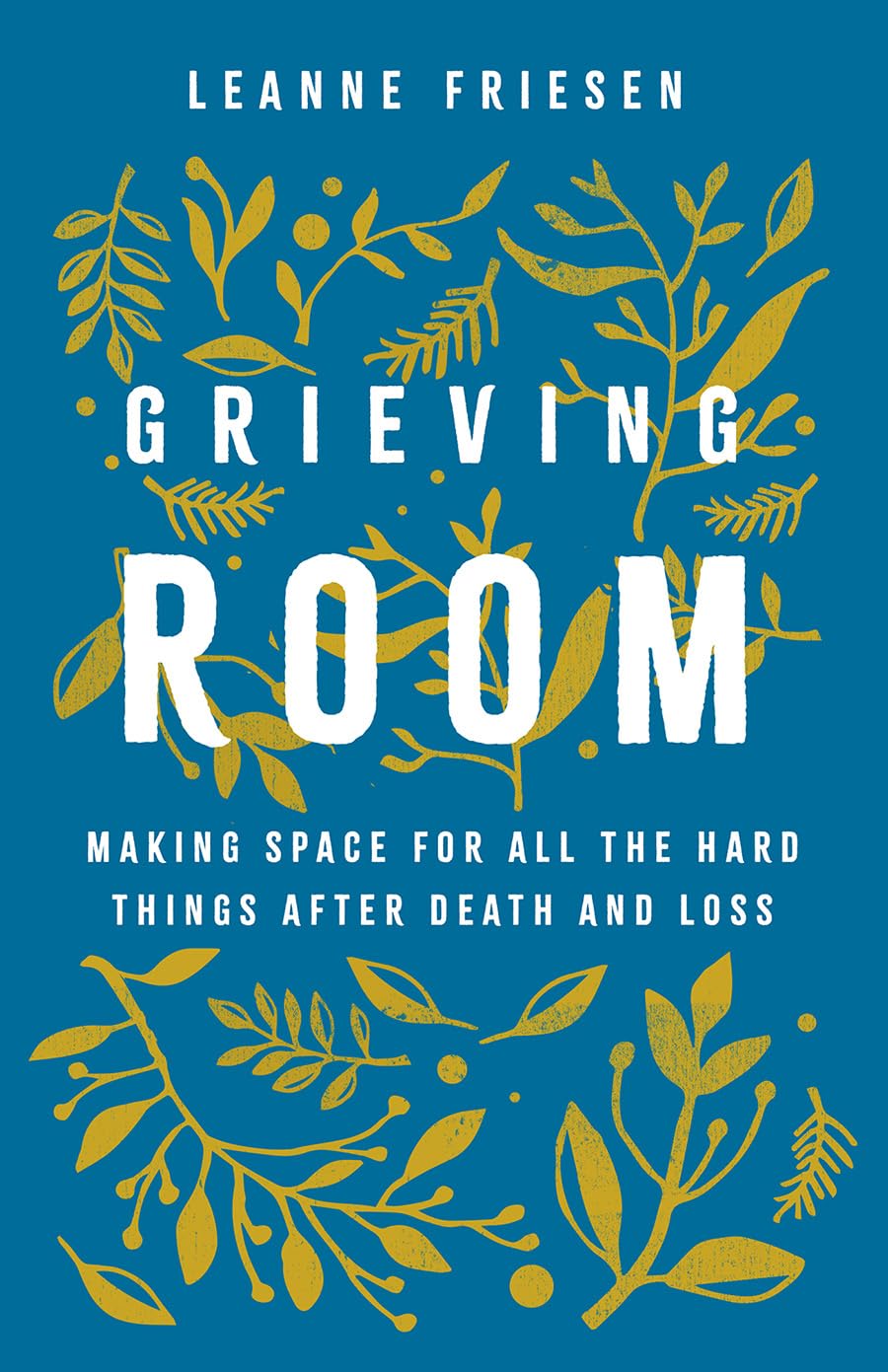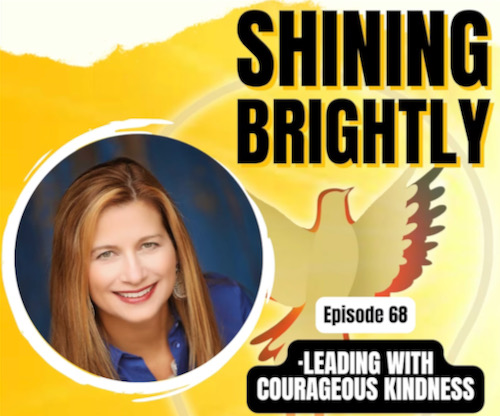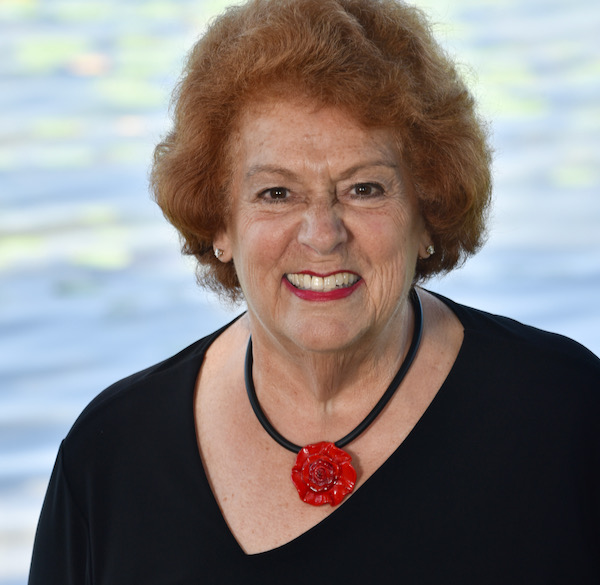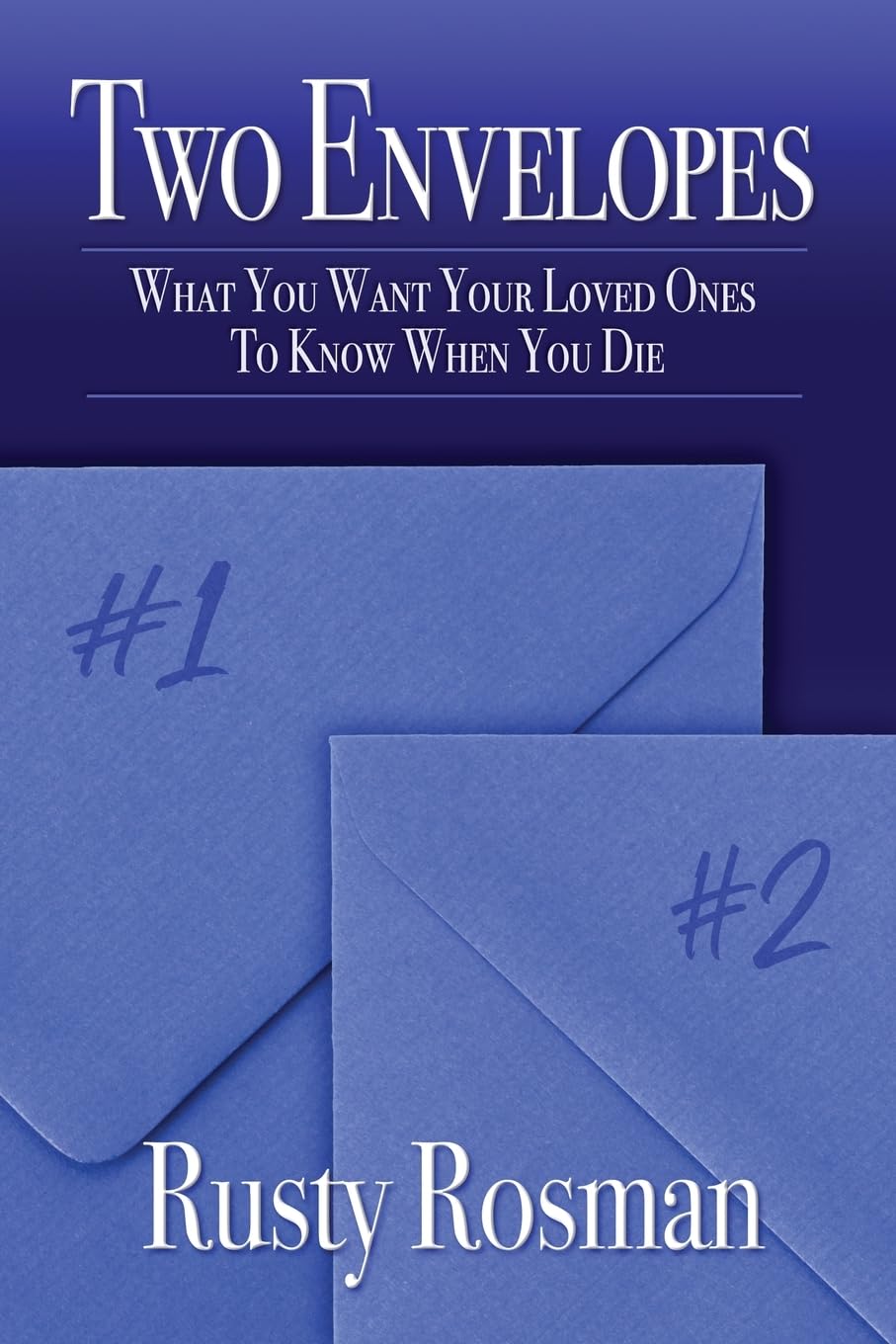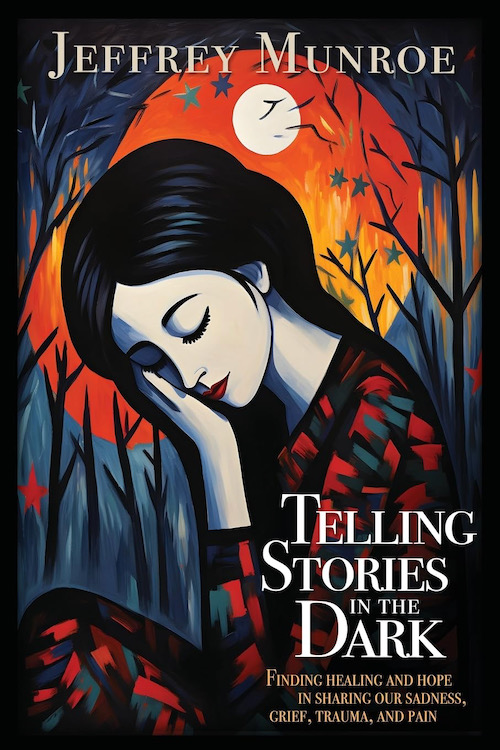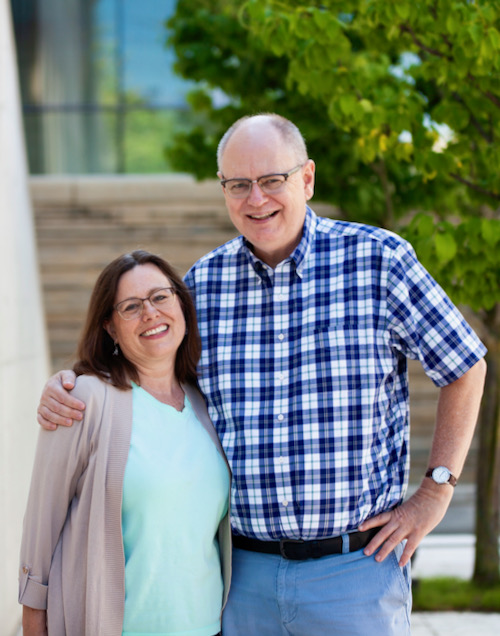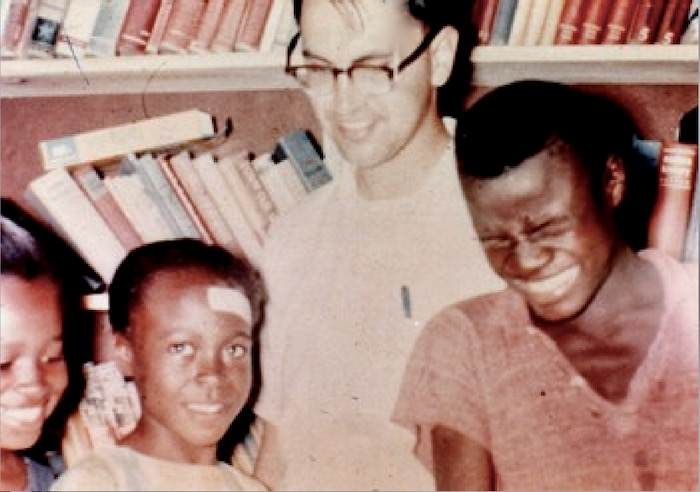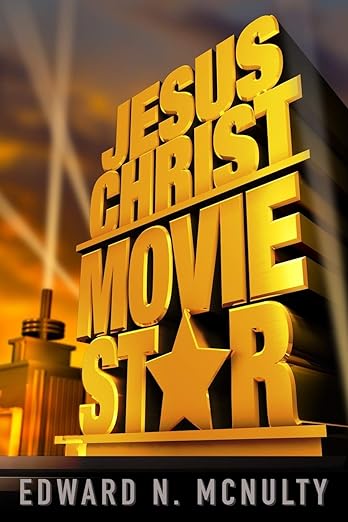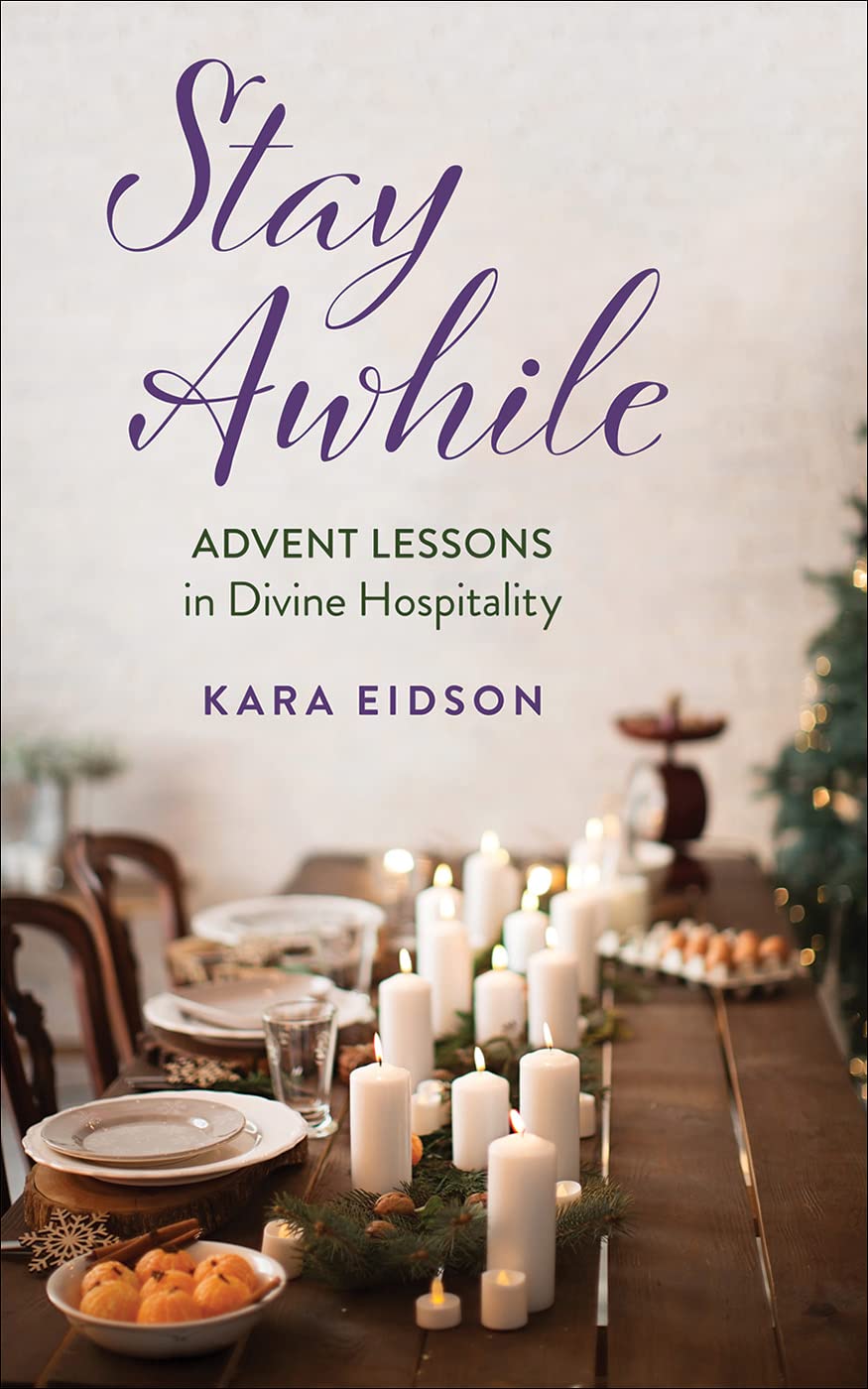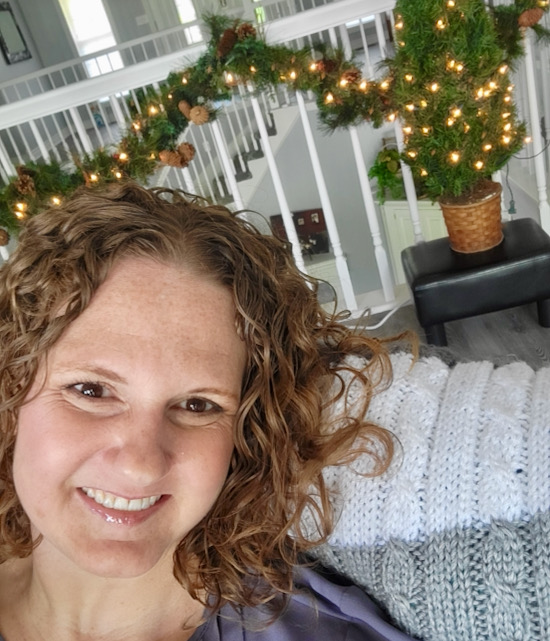Moving Together Toward Compassion:
A Call to Daily Transformation
By DAVID CRUMM
Editor of ReadTheSpirit magazine
Most of us who have made it into the middle of adulthood can recall moments of harrowing tragedy, humiliation and harm we have suffered in various forms.
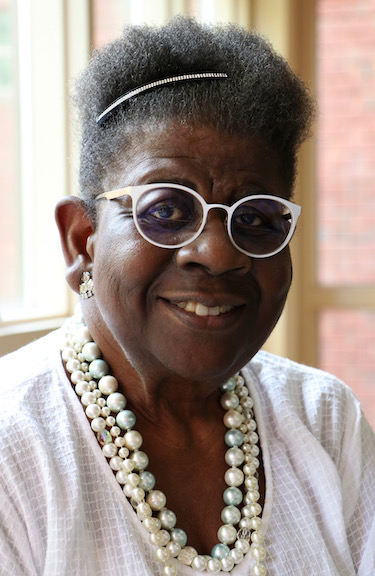 The scholar and teacher Dr. Catherine Meeks—who now is 78 years old as she gives us her memoir A Quilted Life—calls such experiences the “rags” we accumulate in life. The central metaphor of her book is the traditional way African American women, in particular, saved discarded cloth “rags” so they could cut small, useful pieces to assemble beautiful quilts.
The scholar and teacher Dr. Catherine Meeks—who now is 78 years old as she gives us her memoir A Quilted Life—calls such experiences the “rags” we accumulate in life. The central metaphor of her book is the traditional way African American women, in particular, saved discarded cloth “rags” so they could cut small, useful pieces to assemble beautiful quilts.
But with words like “memoir” and “traditional,” readers may wonder: How relevant is this message to us today?
So, that was the first question I asked Dr. Meeks in our Zoom conversation about this memoir. “How do you assess our moment in history?” I asked. “How relevant is your message to our world today?”
She said, “Well, I’m trying to be a helpful voice in our moment in history—but I’m not always sure how we should describe this moment. On my good days, there’s a side of me that wants to say, ‘I don’t really think things are any worse today than they have ever been. Can you find a time in the historical narrative of the world when we were able to live together? We’ve always been in the midst of some kind of upheaval somewhere on the planet.’
“So,” she continued, “there’s that side of me—on my good days. On other days, it’s more likely I’ll answer your question: ‘Oh my God! The whole thing’s going to hell in a hand-basket! How in the world are we going to stop the flow in that direction?’ ”
She paused, then added, “But the biggest thing I want to say right now is: I think this is a moment that calls us to be grounded in whatever we believe deep within us can hold us together. You can’t count on external circumstances to be anything other than chaotic. Right now, at this moment in history, we have a real invitation for people to find out what truly matters to them beyond just the externals in life.”
This answer prompted a wide-ranging exchange as Dr. Meeks and I connected her core message with similar messages from authors as diverse as Maya Angelou and Jeffrey Munroe. For example, the theme of Jeff’s new book, Telling Stories in the Dark, reflects author Frederick Buechner’s defining message that telling our stories honestly to each other helps us to discover we are not alone—and to connect with other people.
“I think it’s a powerful message we need to hear loud and clear, right now,” I said to Dr. Meeks. “That’s why I’m talking to you today and publishing a story in our magazine to urge people to read your book.”
She nodded. “Yes, and that’s a message I’m also hearing from some of the first folks who read my new book and reached out to me about it. They’re saying my story helps them to remember their own story better,” Dr. Meeks said.
“You know, when the idea of this book first came up, I was hesitant,” she told me. “I asked myself: Who needs to read one more story about somebody’s journey—unless it is a catalyst for people to engage in their own journeys? And that’s why I agreed to write this book: I want readers to reconnect with their own stories and memories and be engaged—to go deeper into their own lives. My ultimate intention is to be a contributor to healing and wellness by helping people to connect with whatever God has for them to do in their life for the good of the world.”
“Powerfully said,” I told her. “I’ll definitely quote you on that from the transcript.”
She nodded again, then added, “You know, we get into so much trouble in this world, because we don’t realize that your story is my story and we share a human story. If people would understand this better, we could begin to erase the racism and sexism and classism and able-ism dividing us and causing so much of the tragedy in our world.”
Transforming the ‘Rags’ to See Their Beauty
At the end of that lament about harmful “isms” from Dr. Meeks, did you note her concern about “able-ism”?
Readers may assume that the this book is mainly about Dr. Meeks’ long family struggle with racism—as well as her struggle as a brilliant woman trying to make her way in a strongly entrenched network of male academics and church leaders.
But, there’s even more to ponder in this memoir about the search for equality and justice!
Dr. Meeks also is an eloquent advocate for the millions of Americans with chronic health conditions that complicate family life and access to work—as well as places of worship. For decades, she has suffered from rheumatoid arthritis—and that struggle has been as potent a learning opportunity as confronting sexism, racism and classism.
Early in her book, she writes:
My journey resembles quilt making in that it comprises many experiences that the world would see as raggy—irredeemable or useless. I have suffered from rheumatoid arthritis and have been exhausted by trying to build a career in racist institutions. I have raised two Black young men, on my own, in a country that threatens the lives and safety of Black men. Despite the hardship, each of these experiences has allowed me opportunities to listen for the sound of the genuine in myself and in the world around me. The rags became more than rags. They are threads of love that were waiting to be put into conversation with one another. Pieced together, they would be transformed into a beautiful whole. All the disparate emotions, fears, hopes, dreams, successes, and failures that may seem worthless actually hold massive potential to help in creating something new that never existed before.
Then, later in her memoir, Dr. Meeks addresses her long struggle with her chronic health condition and draws this startling conclusion: “Rheumatoid arthritis became my teacher.”
To learn how that painful disability became an opportunity for growth in Dr. Meeks’ life, you will want to get a copy of her book, of course. But, overall, Dr. Meeks’ constant call to readers is to think of those painful parts of our own lives—our “rags”—and to consider the radical idea of re-envisioning those rags as beautiful and life-giving parts of our lives. And, by sharing those stories with others, she says to us repeatedly, those rags can contribute to a life-giving transformation of our communities.
The Spiritual Wisdom of ‘Putting One Foot in Front of the Other’
This journey—and the hope of the kind of transformation Dr. Meeks is describing—certainly is not easy!
It certainly was not easy for Dr. Meeks! At nearly every turn in her life story, readers will discover that her successes seemed to be met with fresh challenges, dangers and traumas.
She told me, “I certainly did not write this book so that people would say: ‘Oh, what an amazing person!’ That’s not what I am trying to communicate! What I am trying to communicate is that life is about perseverance. Life often is hard. Very hard. But I am a person of hope who is trying to persevere each day, because I refuse to be stuck. I want to be free. I want to transcend the limitations that are placed all around me. And so I wake up each day and continue putting one foot in front of the other until I am moving through my day.
“This book isn’t intended as a celebration of my life. It’s a story of perseverance. We’ve got to greet each day, ready to keep moving on—because we are pilgrims forever. That’s my message I hope readers will see in this book.”
‘Pilgrims Forever’
Did you note that very quotable phrase? “We are pilgrims forever.” Dr. Meeks’ book is packed with quotable lines, another good reason to read it. Her wisdom is likely to be quoted in countless columns and Sunday-morning sermons over this coming year.
There is another reason Dr. Meeks agreed to write this memoir, she admits: She realized that many people today have no idea what it was like growing up in a Black sharecropper’s family in the South. She watched as her own father’s faith and hopes were crushed year after year, because the sharecropping system was designed to never allow him to bring his family’s heads above the deep waters of his debt to white property owners. At one point, her father even took a desperate action to break free—and failed. Dr. Meeks watched her father eventually die, sunk in his decades of discouragement.
So, these traumas Dr. Meeks writes about are more than insults or slights. These are life-and-death matters and her memoir is full of her own indomitable quest for justice—for herself and for her thousands of students over many years.
Yet, through it all, Dr. Meeks’ voice “sounds” very much like we are sitting around a kitchen table after dinner as this matriarch tells her life’s story. Even in the most dramatic moments she encountered—for instance, the 1965 Watts Uprising—there’s no effort to over dramatize in her narration. In reading this book, we’re simply letting a beloved storyteller stitch together this astonishingly varied patchwork quilt into a narrative that has the potential to heal us—if we read carefully and take the lessons to heart, that is.
‘Turquoise and Lavender’
The book ends just before Dr. Meeks decided to add just a bit more to her life’s quilt. Shortly after she finished this manuscript, she finally retired from some of her major daily commitments (you can read all about her many accomplishments in the memoir)—and decided to launch a new online community dedicated entirely to healing individuals and communities by evoking shared experiences. Those include outdoor experiences, especially with flowers, herbs and stones.
If you want to explore that latest colorful section of Dr. Meeks’ quilt, visit her new website Turquoise and Lavender. If you do click that link, you’ll find a page with a longer summary of Dr. Meeks’ many accomplishments—and you’ll be able to see watch a beautifully produced video in which Dr. Meeks talks to visitors about this new project.
This memoir is inspiring because Dr. Meeks not only triumphed over adversity herself but, more importantly, has kept inventing new ways of promoting transformation in others. You’ll feel it’s well worth the effort to spend some time by Dr. Meeks’ side.
